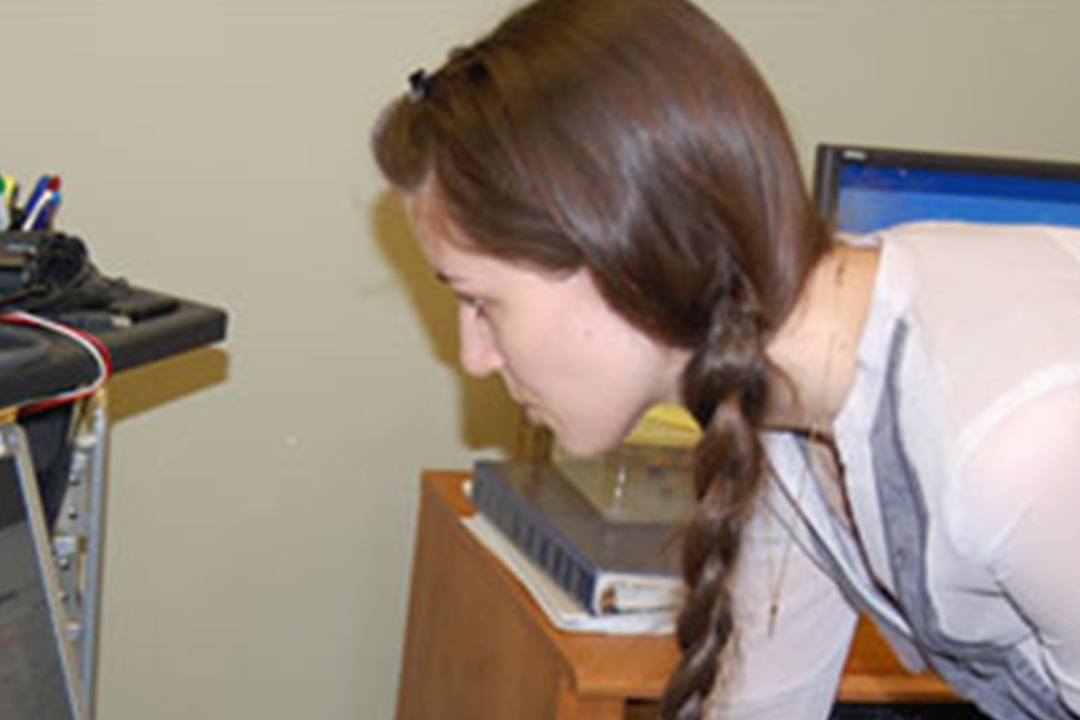More than 68 million people worldwide are affected by stuttering—a communication disorder in which speech is interrupted by abnormal pauses in syllables, broken repetitions, and prolongations of syllables. While there’s no definitive cause, speech pathologists theorize stuttering may be influenced by a variety of factors, including genetics and issues relating to development of grammar skills in childhood. A key factor is anticipatory anxiety—the theory that a person will experience symptoms of fear and nervousness when faced with something that has frightened them in the past. To better understand the impact of this form of anxiety, senior speech, language and hearing sciences major Olivia Cali conducted a controlled experiment among a group of adult stutters. Cali is one of 15 Luther Undergraduate Research Fellows selected by Columbian College this year to engage in independent, faculty-mentored research projects.
In the controlled experiment, participants were tasked with public speaking scenarios via two virtual reality environments: one where they gave a five-minute speech to an empty room; the other when they gave the same speech to an audience. Cali, with the supervision of Associate Professor of Speech, Language and Hearing Science Shelley Brundage, measured the two objective factors of anxiety—heart rate and perspiration level—five seconds before, during, and after the participants stuttered, as well as the subjective view point of the person’s anxiety via the Subjective Units of Distress (SUDS) scale.
“We found that the biophysical measures weren’t significantly different within those intervals before, during, and after the stutters, so we’re challenging some of the theories about anticipatory anxiety,” said Cali.
Though she found no significant differences in the objective measures between the speaking tasks (empty room vs. audience), Cali found that the participants subjectively reported feeling more anxious during the audience task, meaning that the virtual reality scenarios did produce subjective anticipatory anxiety, even though participants did not demonstrate physical symptoms. Cali’s findings indicate that virtual reality scenarios may prove to be effective in helping patients work through their anxiety issues in a safe, simulated situation.
“Anticipatory anxiety theory gets a lot of traction in therapy because adult patients say that they know they will stutter when faced with certain situations or with certain words,” explained Brundage. “In therapy, we try to reduce the initial fear of that stutter so that we can reduce the occurrence of the stutter. We can recreate exposure to the anxiety within virtual reality and teach the patients to confront their fears and implement strategies to manage their stuttering response.”
Cali will present her complete findings at an undergraduate research event this month. She has also applied to make a presentation of her research at the 7th World Congress of Fluency Disorders in Tours, France, in July.


